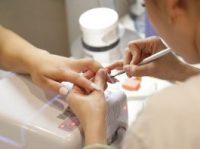Vaccine for the most dangerous strain of hand, foot and mouth virus is about to be available in Vietnam
A vaccine that can protect against the EV71 virus, the most dangerous strain of hand, foot and mouth disease, may be available for use next year, according to the Ministry of Health.
The vaccine was developed by Taiwan’s National Health Research Institute (NHRI) and underwent phase one and two clinical trials with 425 infants aged 2 to 12 months between 2010 and 2017.
The vaccine then entered phase three clinical trials in Vietnam and Taiwan with more than 3,000 children. The Clinical Trial Center of the Pasteur Institute in Ho Chi Minh City collaborated with the NHRI in conducting the trials in Vietnam. The trials involved children from two months to under six years old who lived in six districts in Tien Giang and Dong Thap provinces.
THE NATIONAL ETHICS COUNCIL IN BIOMEDICAL RESEARCH (MINISTRY OF HEALTH) REVIEWED AND APPROVED THE APPLICATION FOR THE TRIALS, WHICH TOOK PLACE FROM 2019 TO 2021.
On July 4, Doctor Nguyen Trong Toan, deputy director of the Clinical Trial Center of the Pasteur Institute in Ho Chi Minh City, said that the results of the phase three trials showed that the vaccine was 96.8% effective in preventing EV71 hand, foot and mouth disease of any severity. This finding was published in The Lancet, a prestigious medical journal.
The Ministry of Health is reviewing the dossier submitted by the manufacturer of a vaccine against hand, foot and mouth disease (HFMD) caused by EV71 virus, one of the most dangerous pathogens of this disease. The vaccine is based on whole-particle inactivation technology, which uses heat or chemicals to kill the virus while preserving its antigenicity. According to Deputy Health Minister Nguyen Thi Lien Huong, the vaccine could be approved and marketed by the end of the year, if it meets the safety and efficacy criteria.
This would be the first HFMD vaccine in Vietnam, and the fourth in the world. Three other vaccines against EV71 have been licensed in China since 2016, with efficacy ranging from 90% to 97.4% after two doses. However, these vaccines only target the C4 genogroup of EV71, which is predominant in China but not in other Asian countries. The vaccine under review in Vietnam uses a strain from the B4 genogroup, which is more common in Southeast Asia and has also been associated with severe HFMD outbreaks.
HFMD is a common childhood infection that usually causes mild symptoms such as fever, rash, and blisters on the hands, feet, and mouth. However, some cases can develop serious complications such as meningitis, encephalitis, or acute flaccid myelitis, which can lead to death or permanent disability. EV71 is considered to be the most severe neurotoxic enterovirus and has caused several epidemics in Asia since the 1990s. In Vietnam, EV71 re-emerged in April 2021 after nearly two years of absence and has been causing severe cases.
In addition to EV71, HFMD can also be caused by other enteroviruses, such as coxsackieviruses A16, A6, and A10. Therefore, a single vaccine against EV71 may not prevent all cases of HFMD. Researchers are working on developing multivalent vaccines that can protect against multiple enteroviruses at once. The Pasteur Institute in Ho Chi Minh City is also conducting a phase III clinical trial of another EV71 vaccine, which is expected to have results in 2025.
In the first half of the year, southern provinces recorded more than 9,000 cases of HFMD, lower than the same period last year but increasing from the end of April until now. The last line children’s hospitals recorded an increase in the number of seriously and critically ill patients. Many children had to be on ventilators, dialysis, and in some cases did not survive. The health industry predicts that this year’s epidemic will be complicated, because the EV71 strain is dominant.
TO DATE, THERE IS NO VACCINE OR SPECIFIC TREATMENT FOR HFMD. THE MINISTRY OF HEALTH REQUIRES LOCALITIES TO IMPROVE THEIR CAPACITY FOR DISEASE PREVENTION AND TREATMENT, AND TO ENSURE EQUIPMENT AND SUPPLIES FOR CHEMICALS AND DRUGS.
Signs of HFMD are sore throat, erythema, and blisters on palms, feet, buttocks, and knees. At that time, it is necessary to take the child to a medical facility for timely examination and treatment. Sick children should be absent from school for at least 10 days from the onset to avoid infecting other children.
Prevent HFMD by ensuring three clean, including eating, living, hand hygiene and clean toys. Wash your hands often with soap under running water, especially before and after preparing food, feeding, holding or after changing diapers and cleaning a baby.
Source: vnexpress












